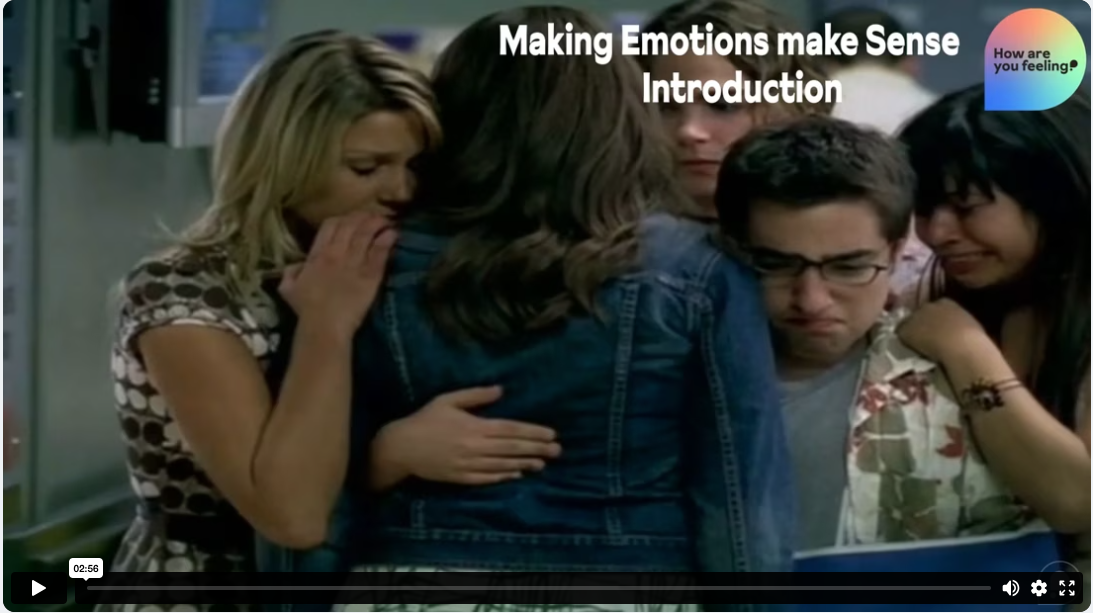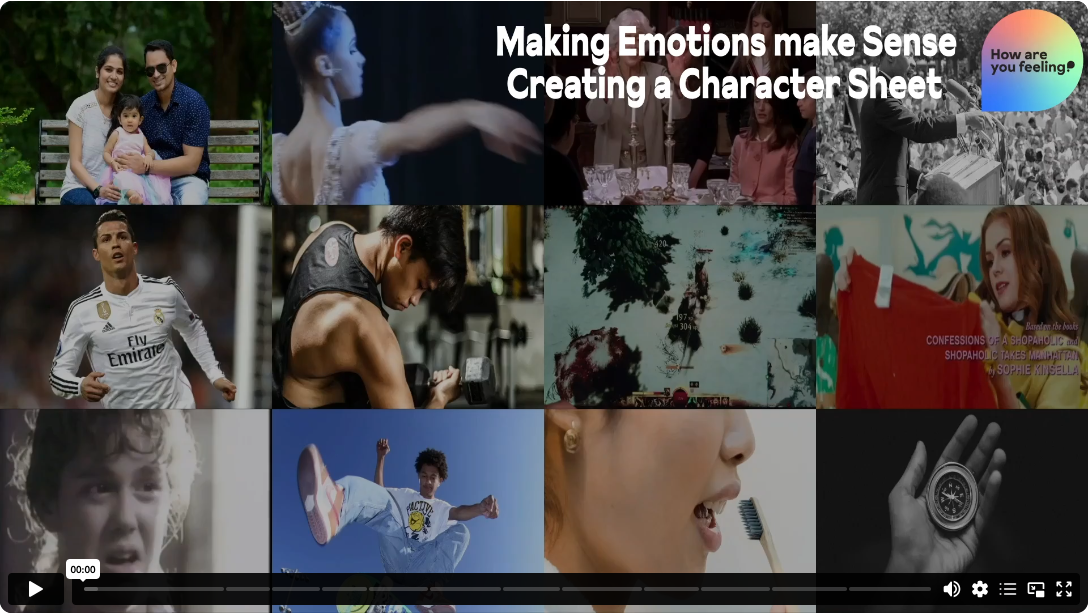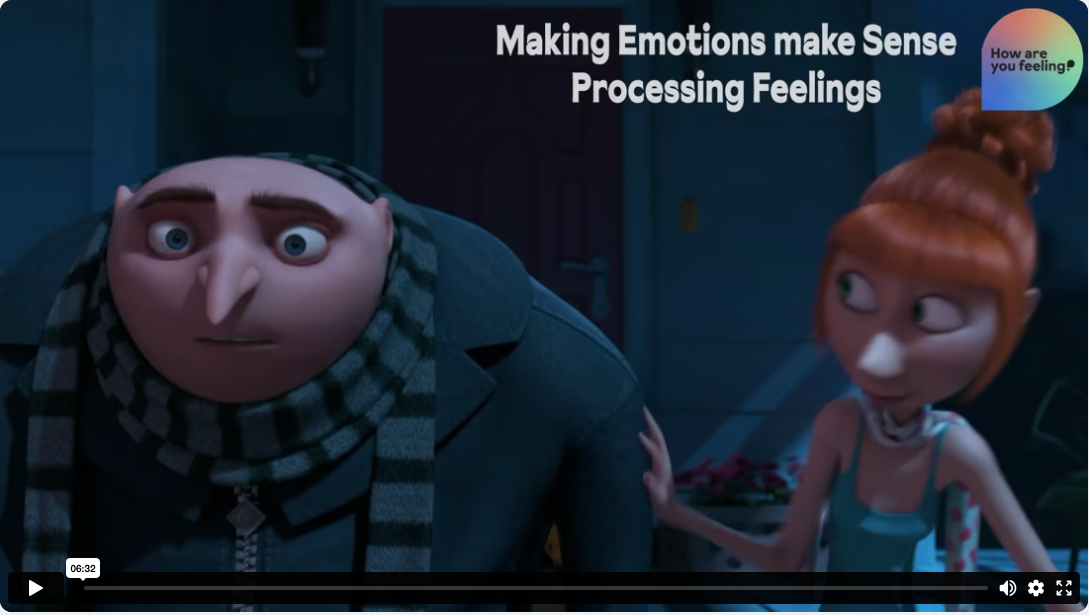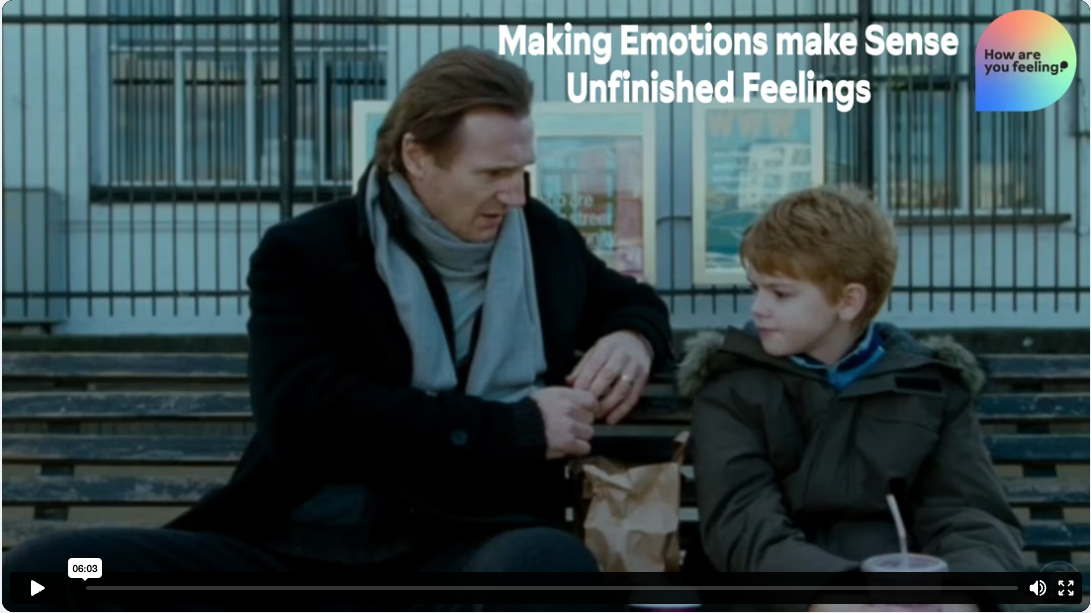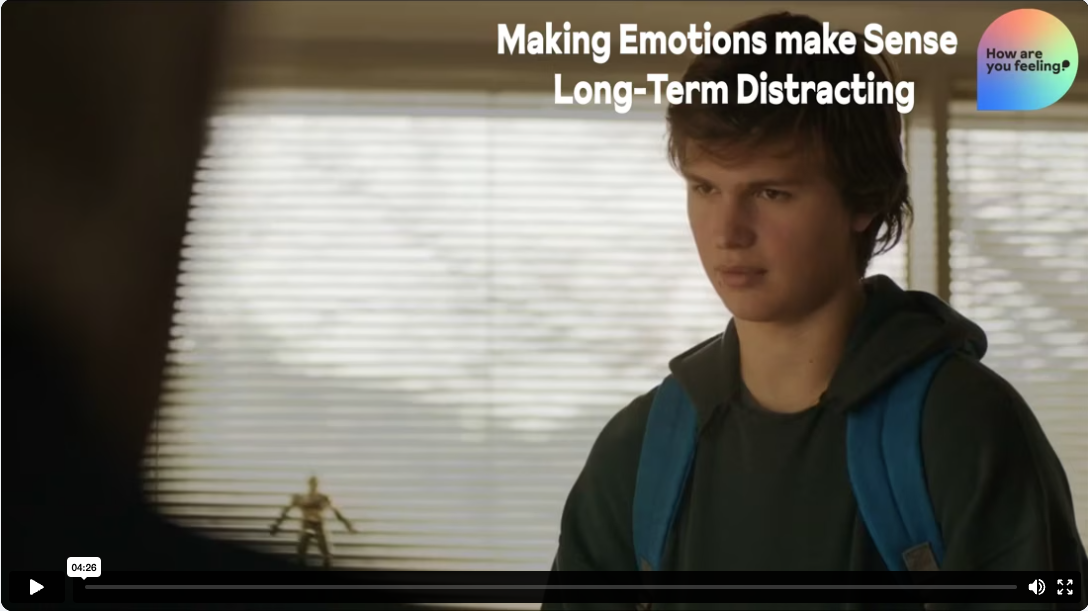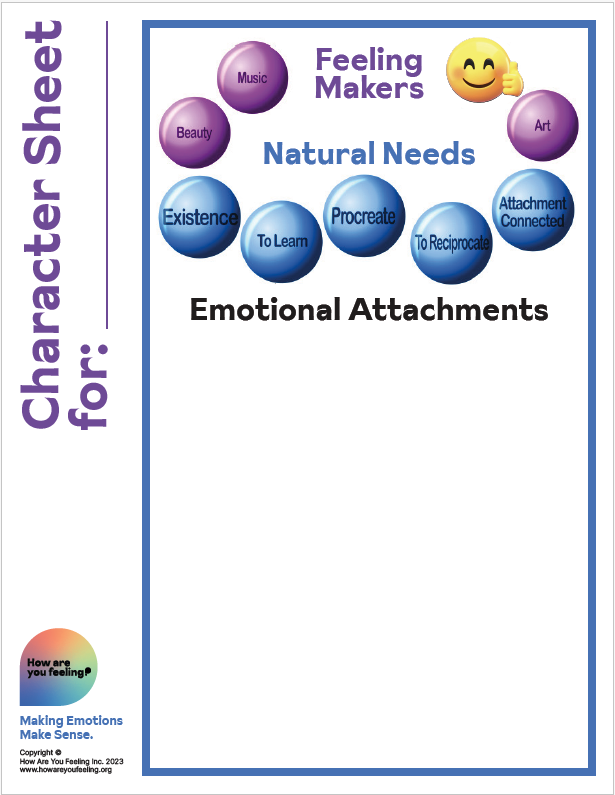Introducing the How are you Feeling?
Essential Program
For use in a Classroom or Learn at Home,
Students Ages 8 to 85
Why the Essential Program
3 hours
The comprehensive How are you Feeling? program (25 episodes) has been hugely successful with students ages 12 to 17. Unfortunately, it takes time to integrate a program like this into school curriculums. The Short Program is able to introduce some very important concepts that are not typically part of an SEL program. We developed this Short Program so it can be delivered easily over 1 or 2 class periods. Complete the form below to access all the program material.
This abridged program focuses briefly on why we have feelings and why and how it’s important to process feelings instead of avoiding them. Most schools have self-regulation programs but students also need to know how to work through difficult feelings. This program can be used for students as young as 8 and we have found that these young people are eager to make their ‘Emotions Make Sense’. The Short Program is free to schools.
Our research with the comprehensive ‘How are you Feeling?’ program shows that kids appreciate learning these topics which were not well understood before taking the program.
Episode Topics
Introduction to misconceptions and disconnected feelings.
Understanding the difference sources of feelings.
Why we have feelings and how they motivate us.
How we attach to things that are emotionally important to us.
Why we need to grieve when an emotional attachment is lost.
How to Process Feelings and why this is such an important skill. (See below)
Dire consequences when we suppress our feelings for too long.
The full 24 episode HAYF program goes into much more depth on how to ‘process feelings’. It includes many more relatable examples, and provides more time for reflection and opportunity for discussion in order to assimilate the emotional concepts.
What do you mean ‘Processing Feelings’ ?
We frequently get asked this question when we talk about teaching kids to ‘Process Feelings’
When an uncomfortable, or terrible event, happens in a young person’s life they will hopefully seek out a parent, friend, or teacher to talk about it. During this face-to-face encounter if the young person feels safe enough, their feelings of sadness, fear, and anger can surface, and the processing of the feelings is initiated. The listener is informed by body language and tone which helps them understand, and empathize, and thereby encourage ongoing processing. If the triggering event was big there will need to be more talking and listening sessions before all of the emotional reactions to the event are thoroughly processed.
The digital age of texting and social media is making it even more important to learn about emotional processing
It is too easy to communicate a difficult event while only connecting through a screen without any physical contact. Seeing the printed word is not the same as hearing a human voice or seeing a person face to face. The encouragement to express the feelings in order to work them through is unlikely without the closer human connection. This can become a pattern — a barren form of communication leaving the feelings bottled-up causing more serious problems.
Kids can learn how to suppress their feelings when appropriate and how to process them to stay emotionally healthy!
Class 1 (assuming 72 minute class length)
Class 2
Ep1 - Introduction 2:56
To begin to understand the basics of why we have feelings, and the unfortunate, incorrect, things we often learn in our culture and family about feelings.
Ep2 - Source of our Feelings 4:04
This episode is about the important role our feelings play in our survival and thriving. The episode describes 3 types of feelings; aesthetic, empathetic, and feelings from innate needs.
Ep3 - Emotional Attachments 4:30
This episode is about how our feelings help to build our character and how we are influenced by the family and culture we are born into to form emotional attachments to people, purposes, and passions that become important to us.
Ep4 - Creating a Character Sheet 24:47 (13 Chapters)
This episode helps the students examine what they are emotionally attached to and to reflect on how and why they have made some of these choices. The episode describes the 12 emotional attachment categories and allows a short time (15 seconds) for the student to add their personal emotional attachments to their character sheet. The video summarizes with a message that the selection of emotional attachments is becoming their responsibility as they grow and develop.
Ep5 - Grieving 3:41
This episode is about what we have to do to heal the hurt of removing an emotional attachment. It emphasizes how important it is for our emotional wellbeing to be able to grieve, or process, a loss of anything that was emotionally important to us.
Ep6 - Introduction to Processing & Suppression
1 min Recap of Lesson 1
4 min Introduction to Processing Feelings & Suppressing of Feelings
Ep7 - Processing Feelings
This episode is about why and how we process feelings. The students learn how to stay with difficult feelings in order to work them through to understanding and integration. They also learn there are many ways to avoid processing difficult feelings that lead to a lifelong struggle.
Ep8 - Suppressing Feelings
There are many good and healthy reasons to suppress our feelings for short periods of time. We have to subdue our natural reaction in many circumstances when we need to accomplish a task or avoid inappropriate behaviour. We do this by learning how to temporarily suppress or regulate feelings.
Ep9 - No Permission to Feel
This clip is an excellent demonstration of how as children we are afraid of our parent’s anger and how this can stop us from feeling and expressing our true feelings. Any fracturing of important emotional attachments is very difficult for a child and obviously results in lots of sadness.
It is natural for a child to need, and want, to cry and it takes a big effort to hide these feelings and tears. It is a double whammy when the child is also afraid of what their parents will say and do if they cry. This can make them very nervous and anxious when they feel tears surfacing or any feeling that has been unacceptable in their family.
Ep10 - Unfinished Feelings
If feelings are not processed they are left unfinished and ‘buried alive’. Understanding this concept encourages the students to find the courage to process their feelings instead of leaving them unresolved only to be triggered up causing confusion and trouble until they are felt enough. Unfinished feelings lead to dysfunctional coping behaviors, anxiety, and depression.
Ep11 - Short-term Distracting
This episode is about distracting as a common defense mechanism for coping with distressful situations and overwhelming feelings. Short term distraction can work well as a needed break. However, continuing to distract, instead of facing and feeling the reality of what is happening, results in accumulated unfinished feelings and unresolved problems.
Ep12 - Distracting against Feeling
Being humiliated in any way is nasty. It can stick with us and affect our life for a very long time as it did with Gru. A humiliating incident can cause withdrawal and a lack of connection to others. This denial of our basic need for connection can lead to isolation and depression and missing out on a lot of life’s pleasures.
Ep13 - Health Suppression and Processing
How we suppress feelings to accomplish a task and process the event when it is safe to do so.
Class 3
Ep14 - The Importance of Processing
An introduction to Class 3 includes backstories and a scientific study that demonstrates where feelings are buried alive.
Ep15 - Acting-Out Feelings - Bullying
It is possible to gain insight into why we have behaved in a way we regret. This is a good example of how openly talking with others and expressing feelings without censuring them leads to insight, relief and clarity.
Ep16 - Depression & Despair
Craig’s therapist allows Craig to stay with his feelings from childhood and his current obsessive need to be very accomplished and important. These feelings are already close to the surface and Craig is able to drop his defenses, and talk about his life, which gives him insight into his father’s need for him to be super successful.
Ep17 - Long-Term Distracting
A good example of many depressing events intensifying fundamental feelings of personal unworthiness. “I think if I disappeared tomorrow, the universe wouldn’t really notice”. Video games are not only a convenient distraction from ongoing painful circumstances and feelings; they are also a way to feel something which is a relief from the horrible deadness and emptiness of depression.
Ep18 - Long-Term Suppression
A light hearted look at the effects of long term suppression on relationships and nightmares.
Ep19 - Self-Medicating
Grief can be overwhelming when a young friend dies. Many other feelings such as confusion, incredulity, fear, and distrust may be triggered along with deep sorrow. “It was like a long heat wave through my body. Any ache or pain or sadness or guilty feeling was completely flushed out”. It is understandable that addicts keep returning to the source of their relief even though they learn the feelings return in full force. Jim’s 6 months in jail gave him the drug-free time and solitude to write about it all. The writing helped him express and process his feelings and recuperate. Any amount of writing can be very helpful and is a way to open a door into the many feelings that are waiting to be felt.
Ep20 - Trauma Processing
It is important to become aware that even though we may be overwhelmed with big feelings at the time of a traumatic event it is possible to work them through bit by bit. Acknowledging and expressing them is the beginning of processing all of them.
Ep21 - Processing Childhood Trauma
When emotional pain is too much when we are young, and we have no one to comfort and understand us, we automatically shut down our feelings. We repress them and defend against feeling them by believing we must be at fault. This gives us hope that we can change things by being good or better. These feelings will be acted-out until we are able to open to the memories, seek help, feel the raw pain, experience the truth of the abuse, and come to admire the child that we were.
Ep22 - Stuff Happens
A short 1 minute summary that makes it very clear that importance to go through feelings instead of avoiding them.



